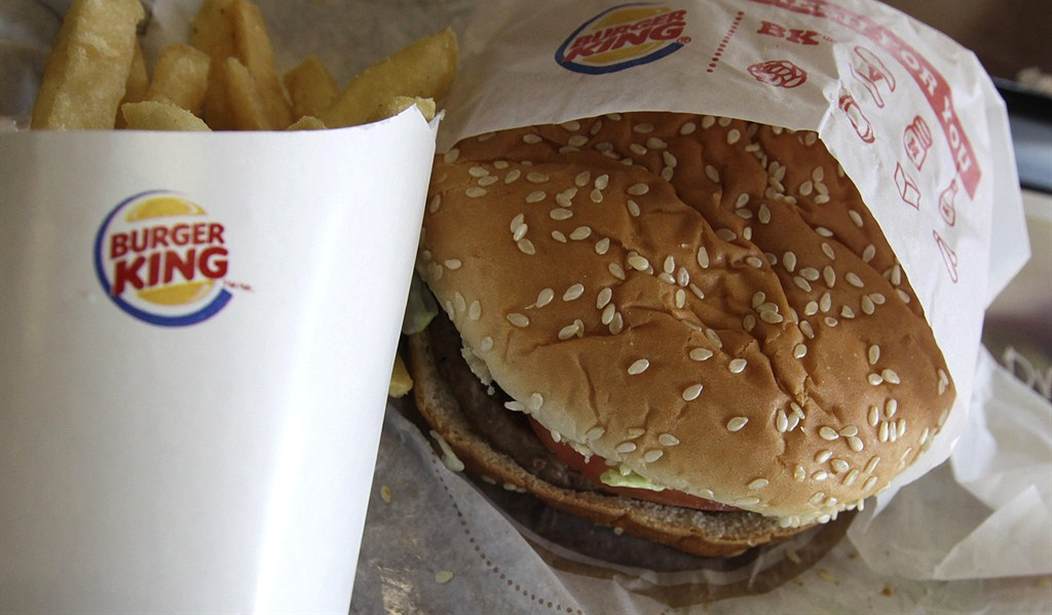We've already covered plenty of stories detailing the fallout in California following the legislature's disastrous decision to suddenly jack up the minimum wage for fast food workers from $16 to $20 per hour. Multiple restaurants have closed all across the state, with some chains moving their headquarters out to red states where costs are more manageable. Countless workers have been laid off instead of enjoying the higher pay they had been promised by Gavin Newsom and his friends. But even the workers at eateries that are still managing to remain open are feeling the impact. As the Associated Press reports this week, many franchise owners have resorted to cutting back the hours of their remaining workers, with some of them taking over working those shifts themselves.
Lawrence Cheng, whose family owns seven Wendy’s locations south of Los Angeles, took orders at the register on a recent day and emptied steaming hot baskets of French fries and chicken nuggets, salting them with a flourish.
Cheng used to have nearly a dozen employees on the afternoon shift at his Fountain Valley location in Orange County. Now he only schedules seven for each shift as he scrambles to absorb a dramatic jump in labor costs after a new California law boosted the hourly wage for fast food workers on April 1 from $16 to $20 an hour.
“We kind of just cut where we can,” he said. “I schedule one less person, and then I come in for that time that I didn’t schedule and I work that hour.”
Lawrence Cheng is hardly the only one in that position. The owner of nine Jersey Mike's outlets in Los Angeles has had to lay off twenty workers and reduce the shifts of others in the mornings and evenings so he can focus on lunch-hour traffic. He too spends part of his time working behind the counter. Another owner who operates 250 Wendy's restaurants hasn't let any workers go yet, but he said he has eliminated overtime and reduced the lengths of all of his worker's shifts. Meanwhile, McDonald's is moving forward with plans to replace more California workers with kiosks and robotic servers.
The U.S. Bureau of Labor Statistics continues to insist that the hike in the minimum wage hasn't led to the predicted mass layoffs and there has even been a small amount of job growth in the industry in California. What they're not telling you is that the majority of those new jobs are part-time and come with fewer, if any benefits. How grateful are these workers who still have a job if their hours are cut back and the opportunity for overtime is eliminated? And are they really bringing home that much more money? Meanwhile, prices at these eateries continue to rise, so fewer people are able to afford to go out to eat.
All of this was predictable. In fact, we predicted it right here on multiple occasions when the wage hike was being debated. This isn't rocket science. It's just basic mathematics, even the public schools don't bother teaching that anymore in many cases. If you increase an operation's labor cost, they will have to find ways to make up for those increased expenses. They aren't going to just suck it up and write it off as a loss. They will wind up raising their prices and laying off or cutting back on their workforce. Those with the working capital to do so will switch to automation.
Gavin Newsom should have known all of this before he signed the bill into law. In fact, I'm confident that he did know it but he went ahead with the move anyway. Who did he think he was really helping by doing this? Why would anyone have believed that this would be a politically popular decision? It certainly doesn't seem to be working out very well for the employees and it's not helping the customers who are already dealing with a very rough economy in the most expensive state in the nation to live in. But the voters in California keep sending the same pack of Democrats back to office year after year, so I suppose they are getting what they paid for.







